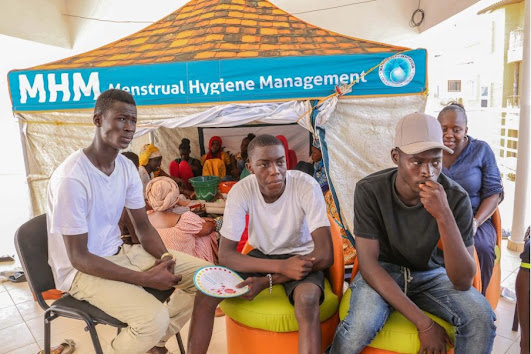Previous posts have looked at how women and girls are disproportionately affected by water crises in Africa, bearing the burden with regard to water collection. Cultural norms worsen this and must be addressed, in particular, with meaningful discussion about taboos concerning menstruation.
An estimated 800 million girls and women around the world experience menstruation each day, however, a large number continue to face persistent challenging in managing their menstruation safely and without stigma. In many Senegalese communities, there is a belief that menstrual blood is an 'impurity, filthy, an evil substance...' Consequently, women are segregated and not allowed to contribute in household activities such as cooking and cleaning, which can severely damage self-esteem.
These taboos are exacerbated by the presence of period poverty, which is the inability to access sanitary products and having a poor knowledge of menstruation, often due to financial constraints. Organisations like the UN have stressed the significance of menstrual hygiene management (MHM) (gender equality in SDG 5) but inadequate water, sanitation and hygiene (WaSH), and an abundance of misinformation means period taboos are still widespread.


I really enjoyed reading this blog, particularly as I have also done a blog on period poverty, but focusing on different countries in Africa, so it was interesting to see the way in which you wrote about this topic! I particularly liked your focus on The Kigali Menstrual Station in Rwanda- I think this is a great way to remove the stigmatisation around periods and educate girls about the importance of good hygiene and sanitation. Some countries like Kenya have removed their tax on some sanitary products- what impact do you think this could make on the accessibility of sanitary products for girls?
ReplyDeleteHi Kavitri and thanks for your comment! I certainly think that removing tax makes sanitary products cheaper and therefore more accessible. Although the big issue is that there are many women who simply cannot afford these products at all, so there must be some schemes or solutions where they can access them for free. I think governments should analyse how to best help women depending on specific circumstances and ultimately, conversations must be had within communities. There is still a lot to do!
Delete